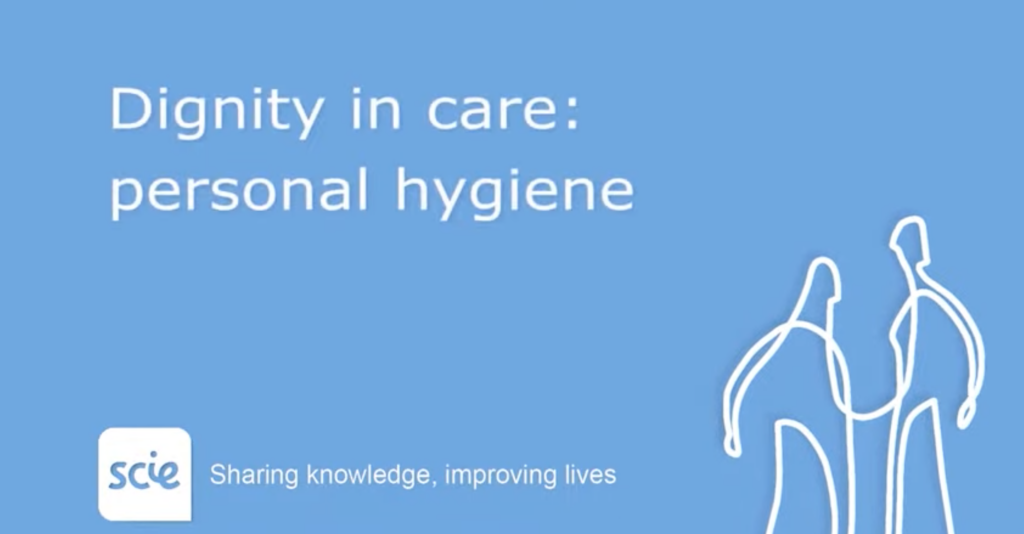This film gives us an insight into people’s lives and the way they want to maintain their surroundings. Howard prefers a wet shave. It makes him feel good. Howard lives at the Wren Hall Care home and another resident there, Trudi, likes her hair curled and nails painted. Helping people look their best and take pride in their appearance, helps boost their confidence and makes them feel better about themselves. That doesn’t at first seem to have much to do with dignity, but the film makes a case that getting your hair done or being complimented on the way you look, among other things, can play a central role in providing dignity. Often it’s about using creative ways of getting people to accept care and support.

Messages for practice
- Good personal hygiene is an important part of maintaining dignity.
- Personal care should be supported in the way a person wants it.
- Having clean home and environment can help people feel safe and comfortable.
- Wellbeing and dignity is promoted through good, person-centred care.
It’s important to support people to maintain their personal hygiene, appearance, their living environment – and to the standards that they want. So, when providing support with personal care, take the individual’s lifestyle choices into consideration; respect their choice of dress and hairstyle, for example. Also, it’s best not to make assumptions about appropriate standards of hygiene for different people and of course, it’s important to take cultural factors into consideration, during needs assessment.
Who will find it useful?
Care staff, managers, GPs, nurses, commissioners, people who use services and their family carers or friends who are carers.
